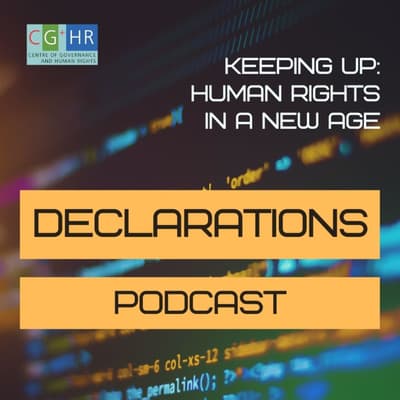Miscellaneous
In this week’s episode, host Maryam Tanwir and panellist Yasmin Homer discuss the role of technology in the securitization of European borders with MEP Patrick Breyer and researcher Ainhoa Ruiz. It was 71 years ago that the 1951 UN Refugee Convention codified the rights of refugees to seek sanctuary and the obligation of states to protect them. In 2015 Angela Merkel famously declared, “Wir schaffen das,” that we can do it. Yet, in 2021, the International Organisation for Migration has described 2021 as the deadliest year for migration routes to and within Europe since 2018. At least 1315 people died on the central Mediterranean crossing, while at least 41 lives were lost at the land border between Turkey and Greece. The creation of a “Fortress Europe” emerges as an issue beyond borders, getting to the heart of what it means to be a citizen in a globalised, technologized world. It combines political, social, and economic interests, with the inclusion of private interests and the development of border technology for “corporate interest.” The question of accountability is at the core: if state policy includes, and can depend, upon the lobbying of private security companies, who are they beholden too? If this technology is produced for commercial interest, can its application be done fairly, without bias, or without profit? Securitisation constructs a constant psychological reality of war, impinging on the rights of those trying to get in the fortress, and those already inside. The only difference between the two is luck of circumstance.

